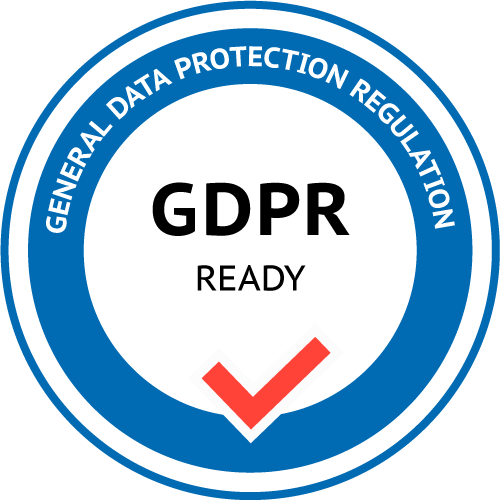Navigating the complex world of finance can be challenging. As a CFO, you are at the top of financial management in your organization, with many responsibilities for strategic decision-making, risk management, and overall financial performance. To excel in this role and achieve your personal career goals, it is crucial to continuously develop your leadership skills. One effective way to do so is by enrolling in a leadership program.
A well-designed leadership program provides the skills and insights necessary to successfully navigate the challenges, as well as the opportunity to network with other financial leaders.
In this blog post, we will explore how a leadership program can benefit a CFO’s career and provide insight into how you can get the most out of it. From improving your leadership skills to expanding your professional network, let’s take a closer look at why a leadership program may be the missing piece in your career puzzle.
Why Do You Need Good Leadership Skills?
A CFO’s role is multifaceted, they are responsible for managing all financial functions and ensuring that the company meets its targeted financial goals. However, a CFO’s job extends beyond crunching numbers and creating budgets. Effective CFOs need to possess excellent leadership skills to effectively lead teams, collaborate with colleagues, and communicate constructively.
One key reason why CFOs need good leadership skills is the changing nature of their role. In years past, CFOs were focused primarily on numbers and financial reporting, but as organizations have become more complex, their roles have expanded to include broader strategic responsibilities.
Today’s CFOs are expected to be more proactive in identifying risks and opportunities, making strategic decisions, and driving innovation across the organization. To accomplish these goals, CFOs must be able to influence and inspire others, from their direct reports to the Board of Directors.
Another reason why leadership skills are critical for CFOs is the need to navigate difficult and unpredictable business environments. Whether it be a sudden economic downturn, a major disruption in the industry, or a global pandemic, CFOs are often on the front lines of managing risk and steering the business through uncertain times. In these situations, strong leadership skills are essential to maintain focus, build consensus, and drive effective decision-making.
The modern CFO must be as much a strategic leader as a financial expert. CFOs possessing strong leadership skills are better equipped to navigate the complexities of today’s business environment, build effective teams and relationships, and drive business success. Therefore, investing in developing their leadership skills will likely make CFOs more successful and impactful in their roles.
How Does the CFO Acquire Leadership Skills?
While some individuals may have natural leadership abilities, there are many ways to improve and develop these skills. Strong leadership skills are developed through a combination of mentorship, ongoing learning and development, emotional intelligence, and a focus on strategic thinking and operational execution.
Learn from experienced mentors
One effective approach to developing leadership skills is by seeking out mentorship and coaching from experienced leaders within the organization. This approach can provide valuable insights into effective leadership styles and strategies, as well as offer guidance on how to navigate complex organizational dynamics.
Keep working on your professional development
Ongoing learning and professional development is the key. You can enroll a specific leadership education program, attend conferences and seminars, read leadership literature and biographies of successful leaders, or actively seek out feedback from colleagues and peers.
Improve your communication
It’s important for CFOs to cultivate a strong sense of emotional intelligence and self-awareness. This includes the ability to communicate effectively with team members, develop strong relationships based on trust and respect, and navigate conflicts and difficult conversations with grace and confidence.
Find the right balance
Successful CFOs must be able to effectively balance both strategic thinking and operational execution. Finding the right balance requires the ability to anticipate and navigate potential challenges and opportunities, while also maintaining a focus on the daily operations and financial management of the organization.

How Can a Leadership Program Help You With Your CFO Career?
A leadership program is a comprehensive training program designed to provide top-level executives with the essential skills they need to navigate the complex business environment. These programs cover a wide range of topics, including strategic thinking, communication, financial acumen, team management, risk management, and more. By taking part in such programs, CFOs can develop their leadership abilities and enhance their decision-making skills.
A good leadership program can broaden your perspective on financial management, challenge you and inspire you to think beyond just the numbers. It can provide a more comprehensive understanding of business operations, which can help you make informed decisions and better communicate the financial impact of business decisions to stakeholders.
Another great advantage of a leadership program is that it can help you build a strong network of peers and mentors. Interacting with other CFOs, industry experts, and business leaders can provide valuable insights and support your career advancement. These relationships can create new opportunities and you can learn from their experiences and challenges.
And in today’s fast-changing environment, leadership programs can help you stay on top of the latest trends and best practices in CFO management, and provide you with access to industry benchmarks and a wider range of financial management resources.
What Are the Main Benefits Of a Leadership Program?
- Enhances Leadership Skills
Leadership programs are designed to help you develop essential leadership skills, such as strategic thinking, decision-making, and communication, which are critical for success in senior management roles. The program provides you with the opportunity to learn and practice these skills in a supportive and structured environment.
- Broadens Perspective
You need to have a holistic understanding of your organization and its operations beyond just the financials. A leadership program can help you broaden your perspective by exposing you to various aspects of business, like marketing, operations, human resources, and technology. This broader understanding will allow you to make informed decisions that are aligned with the overall strategic direction of your company.
- Builds Networks
Networking is a key aspect of career growth. A leadership program can provide you with the opportunity to connect and network with other senior executives from different industries and backgrounds. This way you can build a valuable network of contacts who can provide insights, advice, and potential career opportunities. These connections can be instrumental in expanding your professional network and opening doors for career advancement.
- Fosters Continuous Learning
Leadership is a journey, and continuous learning is essential for staying relevant in a rapidly changing business environment. A leadership program provides you with opportunities for continuous learning through workshops, case studies, guest lectures, and discussions with peers and industry experts. You can stay up to date with the latest trends, best practices, and innovations in leadership and management, equipping you with the knowledge and skills needed to navigate the dynamic business landscape.
- Boosts Confidence
Confidence is a critical trait for effective leadership. A well-designed leadership program can help you build confidence because it allows you to practice leadership skills in a safe and supportive environment. Through simulations, role plays, and real-world scenarios, you can gain confidence in your abilities to lead teams, make decisions, and solve complex problems.
- Provides Career Advancement Opportunities
Many organizations value employees who invest in their professional development and demonstrate potential for leadership. Completing a leadership program can enhance your resume, demonstrate your commitment to self-improvement, and position you as a top contender for career advancement opportunities within your organization or elsewhere.

How To Chose the Right Leadership Program For You?
Before you start, it is important to carefully research and evaluate different options, align them with your specific needs, and choose a program that best fits your career aspirations and learning preferences. Here are some tips to help you make an informed decision:
- Identify your goals: Clearly define your career goals and leadership development needs. What specific skills, knowledge, or expertise do you want to gain from a leadership program? Are you looking to enhance your leadership capabilities in your current industry or transition to a new field? Understanding your goals will help you narrow down your options and choose a program that is the best fit.
- Research program offerings: Look into the curriculum and program offerings of different leadership programs. Review the topics covered, the teaching methods that they use (lectures, case studies, simulations), and the resources available (faculty, guest speakers, networking opportunities). Ensure that the program’s content and approach resonate with your learning style and preferences.
- Consider reputation and faculty: Look for leadership programs offered by reputable institutions with a track record of excellence in leadership education. Research the credentials and expertise of the faculty members who will be teaching the program. Consider their backgrounds, experiences, and industry relevancy. A program led by knowledgeable and experienced faculty can significantly impact the quality of your learning experience.
- Assess program format and duration: Consider the format and duration of the leadership program. Some programs are offered in a full-time, immersive format that requires taking time off from work, while others may be designed for part-time or online learning to accommodate one’s professional commitments. Evaluate the program’s schedule, location, and duration to ensure it fits well with one’s work and personal life.
- Check alumni network and testimonials: Look into the alumni network and testimonials; reach out to alumni or read testimonials to gain insights into their experiences and the impact the program had on their careers. A strong alumni network can provide valuable networking opportunities and connections that can benefit your career growth.
- Consider cost and resources: Evaluate the cost of the leadership program, including tuition fees, accommodation, travel, and other associated expenses. Compare the cost with the potential benefits and value you expect to gain from the program. Additionally, consider the resources and support offered by the program, like career services, coaching, mentoring, and post-program support.
- Evaluate fit with your organization’s values and culture: Consider how the leadership program aligns with your organization’s values and culture. A program that aligns well can help you apply the learning directly to your work environment, and drive meaningful change in your organization.
- Trust your instincts: Finally, trust your instincts. Consider your gut feeling about the program and how it resonates with your career goals. Listen to your intuition, and make sure the program feels like the right fit for you.








